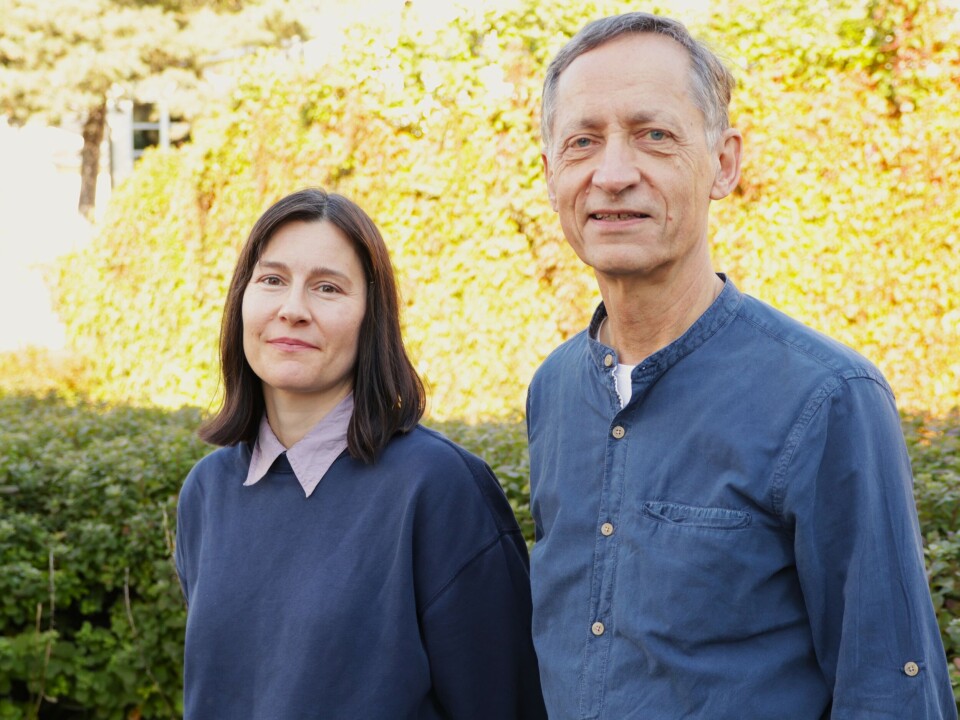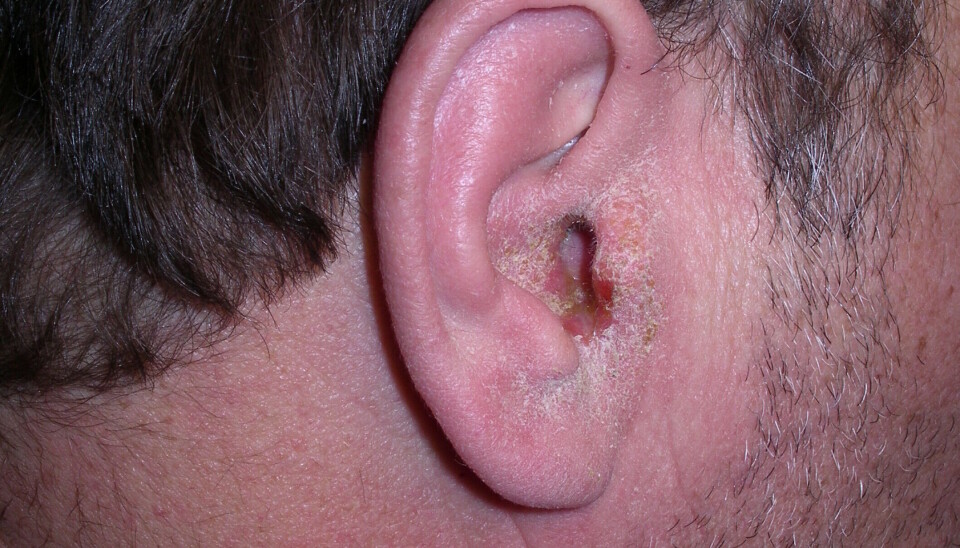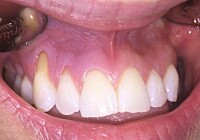
Oil pioneer Jan Erik has lost colleagues to cancer and has become ill from chemicals. Researchers are discovering new forms of cancer linked to the oil industry
“In the last few months alone, many of my former work colleagues have died. Most have gotten cancer,” says offshore oil worker Jan Erik Tandberg.
Jan Erik Tandberg started working on the Ekofisk field in 1979, just a few years after the first Norwegian oil was pumped up out of the North Sea.
He was an oil platform worker for 27 years.
“In the first years we had American bosses. When we asked them if it could be dangerous to work with oil and gas, we were told: ‘These are natural products, so of course it’s not dangerous’,” he said.
“Now it turns out that the process of extracting oil exposed us to a lot of different chemicals. This chemical cocktail has harmed us,” Tandberg said.
Three diagnoses
Jan Erik Tandberg has had three diagnoses related to the use of chemicals approved as occupational injuries.
Nearly 20 years after he quit his job, he still struggles a lot with his health.
“I still react to some chemicals with nausea, vomiting, rashes and headaches. On a daily basis, I have a lot of pain and poor memory, and I also struggle with being very tired and feeling exhausted much of the time,” he said to sciencenorway.no.
But unlike many of his colleagues, he has not developed cancer and is still alive.
“In the last few months alone, many of my former work colleagues have died. Most have gotten cancer,” he says.
Excess cancer incidence
According to research from the Cancer Registry of Norway, offshore oil workers are more susceptible to cancer. The cancer registry has found that the excess incidence of cancer, when all forms of cancer are considered together, is 7 per cent among male offshore oil workers. In this context, excess incidence means that occurrences of cancer are higher than expected.
The corresponding figure is 13 per cent among women who have worked offshore, compared to the rest of the population.
One of the dangerous substances that offshore oil workers have been exposed to is benzene.
Benzene is a substance that has been linked to an increasing number of cancer types.
Recently, a new study pointed to a possible link between benzene and lung cancer in offshore oil industry workers.
Bladder cancer
A new PhD dissertation at the University of Oslo shows that offshore oil workers who have been extensively exposed to benzene may also have an increased risk of developing bladder cancer.
“We see a connection between workers who are most exposed to benzene and an increased risk of bladder cancer, both when it comes to the highest intensity and the number of years,” said Nita Kaupang Shala. Shala completed her doctorate at the Cancer Registry of Norway and the Department of Biostatistics at the University of Oslo.

Shala clarifies that researchers do not know whether it is benzene itself or other substances that are associated with the substance that are the problem.
Up to a doubling of risk
The biggest and most widespread risk factor for bladder cancer is smoking. There is a fivefold risk of this type of cancer among smokers. The researchers have consequently adjusted for smoking in this study.
“We do not find as great an increase in risk from exposure to benzene as we see for smoking. But there is still a high risk, up to a doubling,” Shala said.
Discovered something new
Scientists have long known that benzene in high doses can be very harmful to bone marrow. It has also been known that the substance can cause leukaemia.
These trends have also been identified in data from offshore oil workers.
The connection between benzene and bladder cancer, on the other hand, has not been a major topic for research in the past, says Shala.
Good data in Norway
Shala says Norway’s good data sources are what allowed researchers to discover new trends.
The cancer registry has many more participants and more solid background data on offshore oil workers than other studies.
“We also look at diagnosed cancer cases, while many other researchers only have data for cancer deaths. Many patients with bladder cancer are cured and live long after the disease is diagnosed,” she said.
A turning point in the focus on safety
The Alexander Kielland accident in 1980 spurred the establishment of a system that gives authorities an overview of who worked in the North Sea at all times, and what they were doing there.
The Kielland accident resulted from the collapse of an oil platform in high seas in the North Sea on 27 March 1980. Of the 212 people on the platform, only 89 survived.
The accident was a turning point in how safety is thought of among offshore oil workers in Norway, says senior researcher Tom K. Grimsrud from the Cancer Registry.
“We have now gained access to overviews of helicopter transport to and from the platforms from 20 years back. This can give us a better basis for being able to say something about the long-term dangers of working in the oil industry,” he said.
Noticeable increase in certain types of cancer
The studies that have been carried out so far have been based on a survey from 1998 conducted among the roughly 60,000 people who are believed to have worked on the platform.
They were asked about their work history and several risk factors for cancer.
Fully 28,000 of those who answered said that they had worked for some period from 1965 to 1998.
Among these data from the Cancer Registry is the information that has shown there is an increase in these workers for some types of cancer, compared to the general population.
The research reveals more and more
The Cancer Registry of Norway is now conducting new surveys of health problems among those who have worked offshore.
This will provide additional complementary information, both about those who worked in the industry before 1998 and about those who have worked after that time, the researchers say.

“We are now gradually uncovering more and more. And we are constantly gaining a better understanding of the complex interaction between chemical substances and various forms of cancer,” says Shala.
Not possible to eliminate all hazards
Part of this knowledge has probably contributed to today's offshore oil workers having a safer job, she believes.
“But it is not possible to eliminate all dangers. Benzene is a natural component of crude oil. It is therefore not easy to avoid exposure to this substance,” she said.
“Today, the production process mostly takes place in closed systems, so the problem is greatest when workers open up the pipe systems, when there are leaks or during the drilling of new wells,” Grimsrud said.
Asbestos is also a culprit
Another substance that has caused health problems in offshore oil workers is asbestos.
The material has been used extensively on oil platforms, including in insulation, because it is durable and not very flammable.
Asbestos was also added to drilling mud used until 1985, when there was a general ban on using the asbestos.
Cancer of the pleura
In her PhD, Shala and her colleagues found an increased risk of lung cancer among those who were most exposed to asbestos on the platforms.
Some of the risk was also linked to exposure they had had to the substance before they worked offshore, the researchers think.
The two researchers believe that the danger of asbestos has been reduced in today's offshore work. The substance is no longer used, and old asbestos has been removed.
Difficult to demonstrate the connection
As early as 2007, the National Association of Occupational Health and Safety Injuries (ALF) asked about the state of health of 760 people who worked for Philips Petroleum during the early days of oil exploration and development in the North Sea.
More than half were on disability benefits, which they had begun on average when they were in their mid-50s.
“370 of these were ill, disabled or dead. 130 had died of cancer,” Tandberg said.
Nevertheless, it has been difficult to bring the connection between injuries and work on the oil platforms to the public consciousness.
Many workers who have applied for occupational injury compensation have not been granted it, writes the Cancer Association.
Disappointed with the government
Tandberg himself has had three diagnoses approved as occupational injuries.
“The occupational injury scheme does not work. Few or none get what they are entitled to,” he said.
Now he believes that the oil pioneers, the workers who made such a great effort to build the oil industry and Norway's petroleum prosperity, deserve compensation for having their health destroyed.
This was also the opinion of a commission (in Norwegian) which assessed a compensation scheme for this group in 2022.
A broad majority in Norway’s Parliament, the Storting, has asked the government to speed up action on the matter. The Ministry of Labor and Inclusion is working on the case, but nothing has happened so far.
Tandberg is disappointed.
“If they are going to give us compensation, they have to do it now while people are alive and can enjoy the money. Oil pioneers are dying every month,” he said.
———
Translated by Nancy Bazilchuk
Read the Norwegian version of this article at forskning.no

Subscribe to our newsletter
The latest news from Science Norway, sent twice a week and completely free.






































